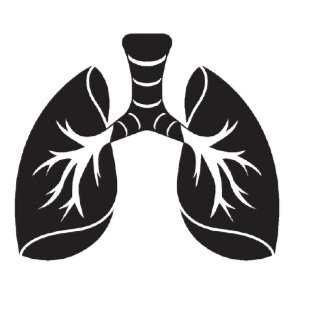How to Prepare for Your First Pulmonology Consultation
Introduction
Visiting a lung specialist for the first time may feel intimidating — especially if you're dealing with ongoing symptoms like breathlessness, a chronic cough, or chest discomfort. Whether you've been referred for a specific test or want expert advice on a long-standing issue, preparation plays a key role in getting the most value from your pulmonology consultation.
In this article, Dr. Ayush Goel, one of Kolkata’s most respected pulmonologists, shares what to expect and how to make your visit smooth and productive.
Why You Might Be Referred to a Pulmonologist
A pulmonologist is a medical specialist who diagnoses and treats conditions of the lungs and respiratory system. You may be referred for consultation if you’re experiencing:
Chronic cough lasting more than 3–4 weeks
Shortness of breath during routine activities or at rest
Sleep-related breathing difficulties
Recurrent lung infections
Unexplained chest tightness or discomfort
Common conditions managed include asthma, COPD, interstitial lung disease (ILD), bronchitis, sleep apnea, and lung infections.
Patient holding medical files
What to Bring to Your Lung Doctor Consultation
Being well-prepared helps your pulmonologist assess your condition thoroughly and make quicker, more accurate decisions. Bring the following to your appointment:
1. Medical Records
Carry all relevant past records, including:
Chest X-rays and CT scan results
Pulmonary function test (PFT) reports
Sleep study results (if applicable)
Discharge summaries from hospital visits
Previous prescriptions
2. List of Medications
Create a detailed list of:
All medications you currently use, including inhalers, oral tablets, or nebulizers
Supplements or herbal treatments
Any medications recently discontinued
Include dosage and frequency.
3. Symptom Diary
It’s helpful to keep a log of:
When symptoms started
How frequently they occur
What seems to trigger them (e.g., exercise, dust, cold air)
Severity and impact on daily activities
This insight often helps the doctor identify patterns or underlying causes.
4. List of Questions or Concerns
Your appointment may feel fast-paced, so it's easy to forget important questions. Write them down in advance. Examples:
Why am I experiencing shortness of breath?
What tests will I need?
How is this condition treated?
What changes should I make in my lifestyle?
What to Expect During the Consultation
Here’s what typically happens during your first pulmonologist visit:
1. Detailed Medical History
Dr. Ayush Goel will begin by asking you about your:
Medical background
Family history of lung disease
Lifestyle habits like smoking or occupational exposure
Symptom patterns
This discussion is critical to forming a working diagnosis.
2. Physical Examination
Expect a thorough physical exam, focusing on your respiratory system. The doctor will:
Listen to your lungs
Check your oxygen levels
Assess any physical signs of distress
3. Diagnostic Tests
Based on your symptoms, one or more tests may be advised, such as:
Pulmonary Function Test (PFT) to assess lung capacity
DLCO test to measure oxygen transfer
Chest X-ray or CT scan to examine lung structures
Bronchoscopy if airway visualization or biopsy is needed
Sleep study (polysomnography) if sleep apnea is suspected
4. Diagnosis and Treatment Discussion
Once initial evaluations are complete, your doctor will:
Explain potential diagnoses
Outline next steps for testing or monitoring
Recommend a treatment plan, if needed
Provide guidance on lifestyle adjustments
Dr. Goel emphasizes clear communication and ensures patients understand the reasons behind each decision.
Tips for a Smooth Consultation
Arrive early to complete paperwork without stress
Wear loose clothing, especially if testing is planned
Bring a family member or friend if you feel anxious or want extra support
Be honest about habits like smoking, occupational exposure, or medication non-compliance — this helps the doctor offer realistic, tailored advice
Why Choose Dr. Ayush Goel for Pulmonology Care in Kolkata
Dr. Ayush Goel is a gold-medallist pulmonologist with credentials from AIIMS New Delhi and MRCP-UK in Respiratory Medicine. He is widely regarded as one of the most trusted lung specialists in Kolkata, known for his:
Expertise in asthma, COPD, ILD, sleep apnea, and critical care
Patient-first approach with personalized care plans
Modern diagnostics including bronchoscopy, PFT, DLCO, and sleep studies under one roof
Experience with complex cases and international research publications
Frequently Asked Questions (FAQs)
Q) Is a referral needed to see a pulmonologist?
A) While many patients come via referral from general physicians, you can also book a consultation directly — especially if you have persistent symptoms or risk factors.
Q) How long will the consultation last?
A) The initial appointment usually takes 20–40 minutes, depending on your history and whether tests are conducted during the visit.
Q) What happens after the consultation?
A) You may be asked to undergo tests or begin treatment. A follow-up consultation is usually scheduled to discuss test results and progress.
Q) Can I eat before the appointment?
A) Yes, in most cases. However, if specific tests like bronchoscopy are planned, fasting instructions will be provided in advance.
Q) How soon can I get results?
A) Some results like PFT are available on the same day. Others, like biopsy or advanced imaging, may take 2–5 days.
Final Tips Before You Go
The more prepared you are, the more productive your pulmonology visit will be. Bring essential documents, know your symptoms, and ask all the questions you need. Early consultation with a lung specialist is key to effective diagnosis and treatment.
Book your consultation with Dr. Ayush Goel, one of Kolkata’s leading pulmonologists, and take the first step toward healthier lungs and easier breathing.

